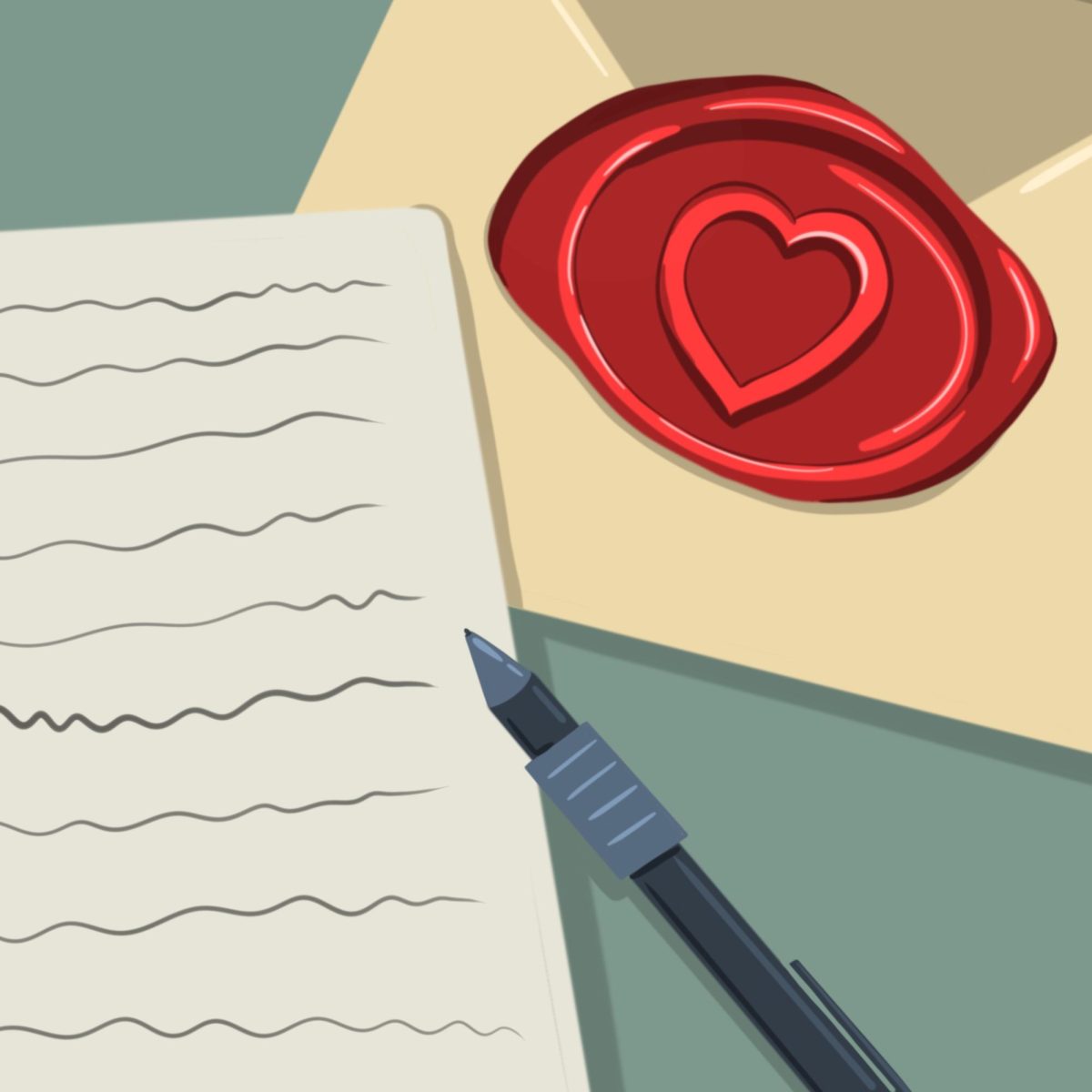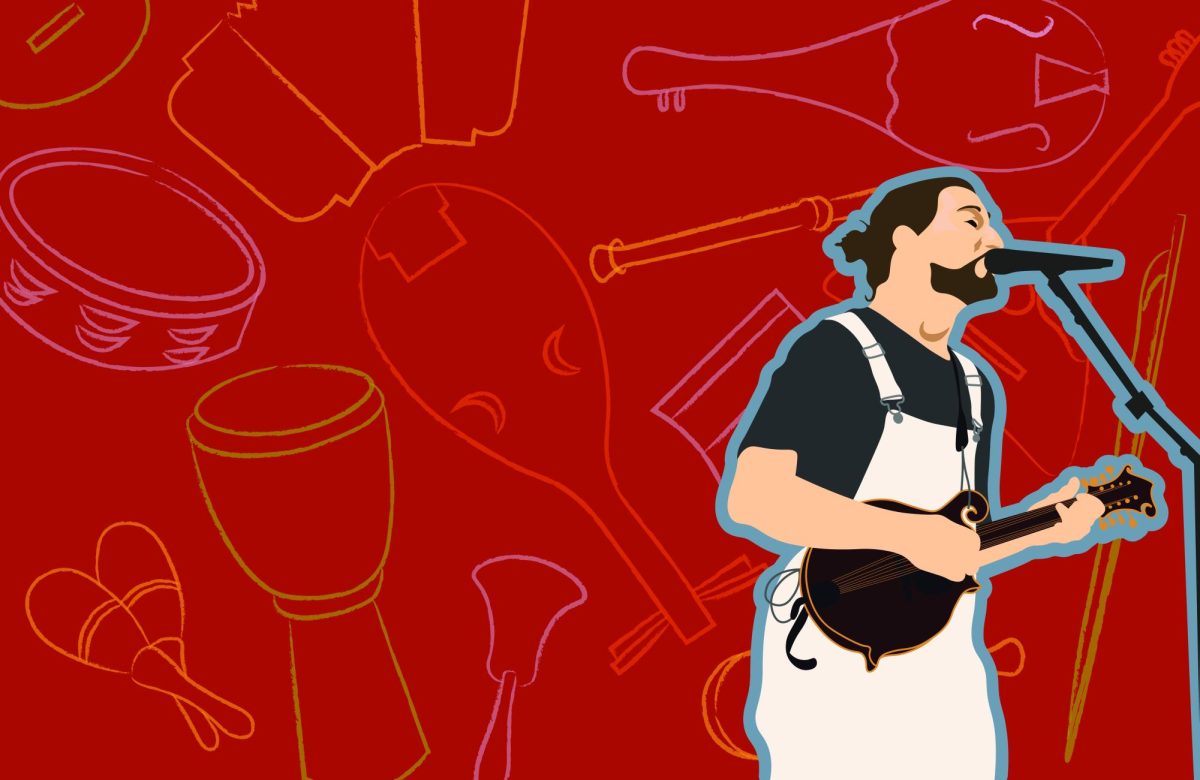I have kept every letter I’ve ever been given. They live in scattered piles throughout my life.
A collection of notes passed in class between me and my former best friend are still pressed between the pages of my high school copy of “The Great Gatsby.” The cards from my 20th birthday sit in my car console, strewn around between a first-aid kit and a $5 bill. My most recent addition is an array of scribbles from each of my cousins, written on the back of a receipt and displayed on my fridge. I keep all of these letters like a disarrayed scrapbook, chronicling the people in my life in a tangible form.
In the past few years, my collection has stalled. Birthday cards have been replaced by birthday texts, and as I get older, parents lose their authority to demand the writing of thank-you letters. As of Jan. 21, the price of a stamp has been raised to 68 cents, the fifth price raise since 2021 and a desperate attempt to slow the financial loss the USPS has been facing for the past 15 years.
The bottom line is that letter writing is dying. Emails and texts are cheaper, faster and more compliant with everyday life, and the practice of writing letters has been cast aside.
There have been slow attempts to resurrect it by making the experience feel more luxurious. Wax seal kits continue to sell on Etsy, and you can pay $15 a month to Letterjoy to receive a reproduction of a historical letter. Most of these efforts fall short because they feel performative, selling the idea of letters but missing the authenticity of them.
Letters have a way of revealing who a person is. In between the scribbling, you can find imprints of the writer on paper. The lingering of their perfume, the wrinkled corner from a hand clenched too tightly around the paper or a circle of condensation from a poorly placed cup are all proof the writer exists. It provides a brief look into their life separate from the words they put on paper. The tangibility of handwritten words forces the process to be intentional, but no matter how precisely a person writes and seals a letter, they tend to leave a piece of themselves behind.
There is an unspoken air of confidence involved with writing on paper. It exists in its own space. The nature of taking a pen to paper and then sending it off, never to be seen by you again, creates a sense of secrecy. There is a reason why so many letters are letters of love. The sanctity of the moment causes people to bare their souls. As letter writing dies, we surrender romanticism for efficiency, shattering fragile moments of earnestness in exchange for instant gratification.
Replacing letters with emails and texts for the sake of a faster reception feels insincere. The format of texting or emails results in interactions that are straight to the point. There is no need to use flowery language or metaphors to convey what you mean when you have the ability to reiterate it at any point of the day.
This accessibility means the words are stripped of personality. It makes them feel vacant. Letters have to convey their meaning through fervent storytelling. The process is more deliberate, the words more honest. Even the people who write nothing more than a simple “miss you” on a postcard felt it so deeply they immortalized it.
At a vintage shop in Pennsylvania, there is a stack of postcards. A collection of 13 years worth of love, grief and joy wrapped up and sold for $4.75. I don’t know why the collection stopped after 13 years. Maybe it stopped because the writers fell in love, replacing postcards with notes placed around their house. Maybe it ended in a screaming match, an irreparable fight and an end to any relationship they might have had. I can come up with as many theories as I want, but it doesn’t change the fact that I’ll never know.
What I do know, however, is at some point in their lives, they cared about each other enough to write it down. In 30 years, those postcards will still exist, preserved as a palpable form of love.
So, immortalize yourself. Put pen to paper, and leave a piece of yourself behind for the people you love.
Kaitlyn Mitchell is an opinion writer. Contact her at [email protected].





Judith Mitchell • Mar 3, 2024 at 8:40 am
Kaitlyn,
Your article is perfectly written. It expresses the sentiments of my generation and those who came before me. Your Grandmama Sorrows would have LOVED it! How lovely that you recognize what is becoming a lost art, and articulating it so well. Love you! MaMaMa and Pops
Carlina • Feb 11, 2024 at 5:35 pm
So well written and articulated. I love this piece. ❤️